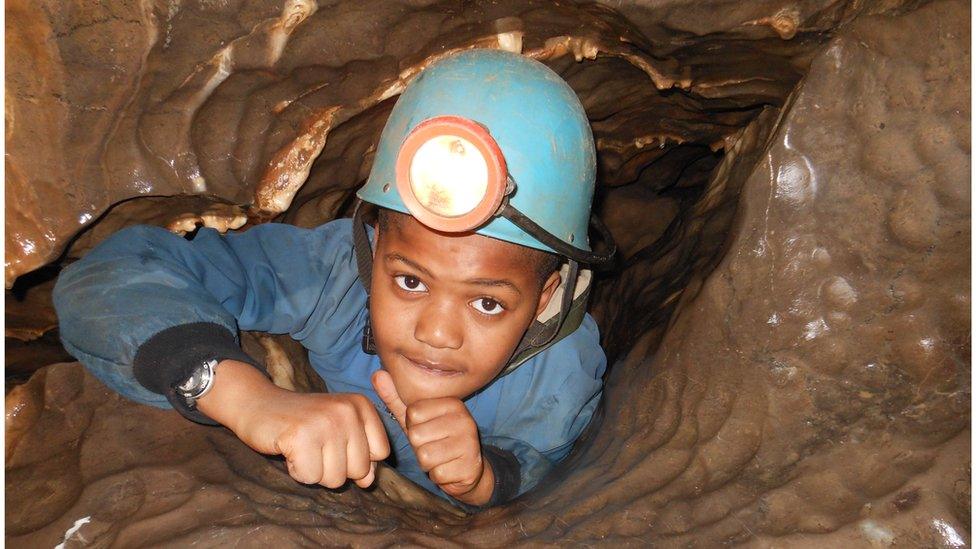Covid: Outdoor education centres 'may not survive'
- Published

More than 1,700 people are employed in outdoor education centres in Wales
Businesses offering overnight education trips for children may not survive unless they are allowed to reopen soon, industry workers say.
Wales had 44 outdoor education centres before the pandemic, but at least five have now closed.
School trips make up the bulk of their income, with many heavily-reliant on pupils from England.
The Welsh Government said it was doing "everything we can to support businesses".
Currently guidance for English schools from the Department of Education (DfE) advises "against all educational visits at this time".
UK Outdoors - the industry body for outdoor learning - wrote to the prime minister last week urging him to "ensure that outdoor education is part of the [UK] government's wider reopening of education, with both day and overnight visits allowed to operate in the critical summer term".
The industry body said it expected a decision soon from the DfE.
'Worth £40m'
But even if the DfE says residential stays can restart, the industry in Wales says it needs agreement from the Welsh Government too.
Those running outdoor education centres in Wales say the industry is worth about £40m to the economy, with more than 1,700 people employed.

Ed Jones' Rhos y Gwaliau Outdoor Education Centre has been closed for 51 weeks
Ed Jones, an owner of an outdoor education centre, said in order to keep on staff if the centre cannot still open by the summer, he would be moving out of his home.
Mr Jones has six staff, who have trained for about six years, at the Rhos y Gwaliau Outdoor Education Centre near Bala in Gwynedd.
"My family and I, we're going to move into our camper van for the summer, so we can let [our house]," he said.
"We'll just do everything we can to see it through until we can reopen.
"We have to keep our staff on. I don't have an option - it's not like I can just get them retrained overnight."
Mr Jones said being closed for 51 weeks meant they had "virtually" lost all their income.
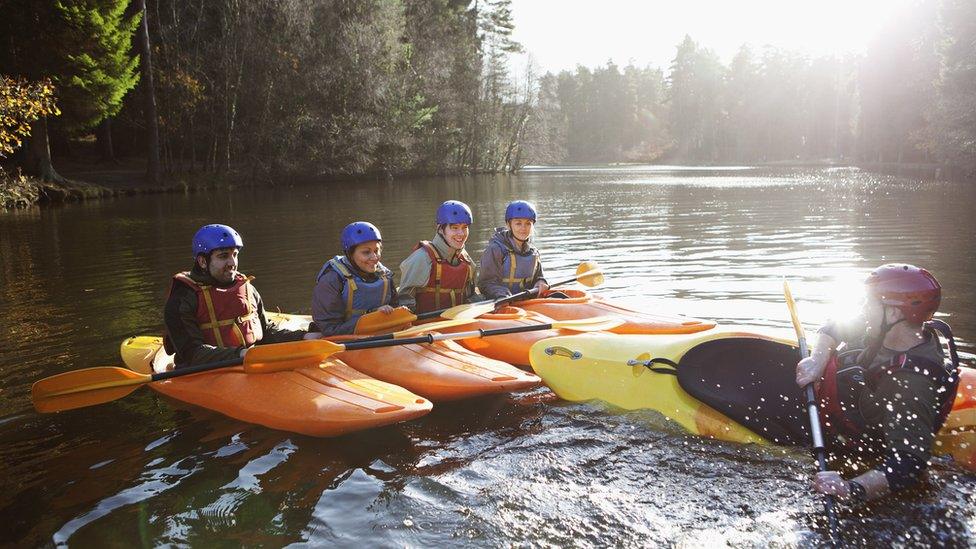
Outdoor education centre industry workers say school trips make up the bulk of their income
Meanwhile, Mark Downey, centre director of CMC Adventure - a Christian-run outdoor education centre and charity - said it could face closure within months after losing 95% of its income since last year.
"In real terms, the cash runs out round about the end of May this year," he said.
Mr Downey said without a "significant injection of cash" or ability to reopen, the business in Llanbedr, Gwynedd "can't see another option other than to close".
'Risk minimal'
The sector "has essentially been decimated", he said.
Mr Downey said the sector needed recognition from the Welsh Government they could reopen in a Covid-secure way, and to allow people from England to travel to them.
"We believe the risk is minimal to the local community, minimal to our staff team," he said.

Gareth Davies says 95% of his business' usual income comes from school residential stays
It feels like outdoor education centres are part of a "forgotten sector", according to Gareth Davies, operations manager at the Arete Outdoor Education Centre in Llanrug, Gwynedd.
"We always felt if schools were fully open then we should be part of this roadmap as well," he said.
"We know that wellbeing and mental health is really important... and this is exactly where we can help.
"But at the moment centres are closing and the next generation are going to miss out at a time when we could be of most help."
Mr Davies said 95% of the usual income came from school residential stays.
However, he said unless a decision was made soon, it could be September before centres could realistically open again.
If that happens, he warned: "I don't see how we're going to survive."
'Very difficult period'
A Welsh Government spokesperson said its priority was to "get as many children and students back to school as possible".
"We are doing everything we can to support businesses through this very difficult period.
"As the public health situation improves and it is possible to relax restrictions, we will do so."
The spokesperson said the Welsh Government had "already put aside £200m for next year and we will continue to review our options for supporting businesses further".
It said Welsh businesses had received support from the non-domestic rates scheme and Economic Resilience Fund, in addition to UK government help.
A DfE spokesperson said: "Throughout the pandemic we have kept our guidance on both residential and non-residential visits under review, in line with Public Health England advice.
"We've taken action to protect lives and livelihoods, including the extension of the furlough scheme and wider support for businesses to continue to support jobs."
- Published15 December 2020
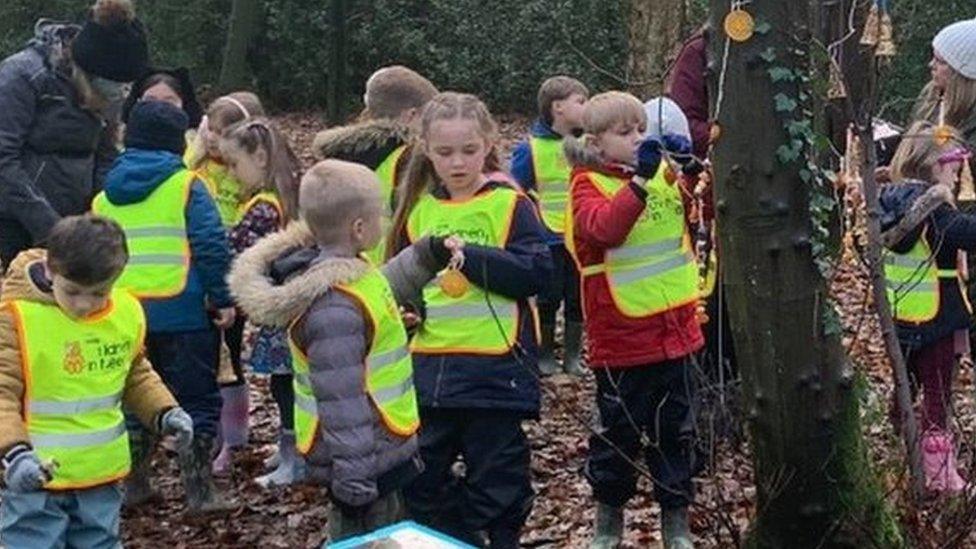
- Published16 October 2020
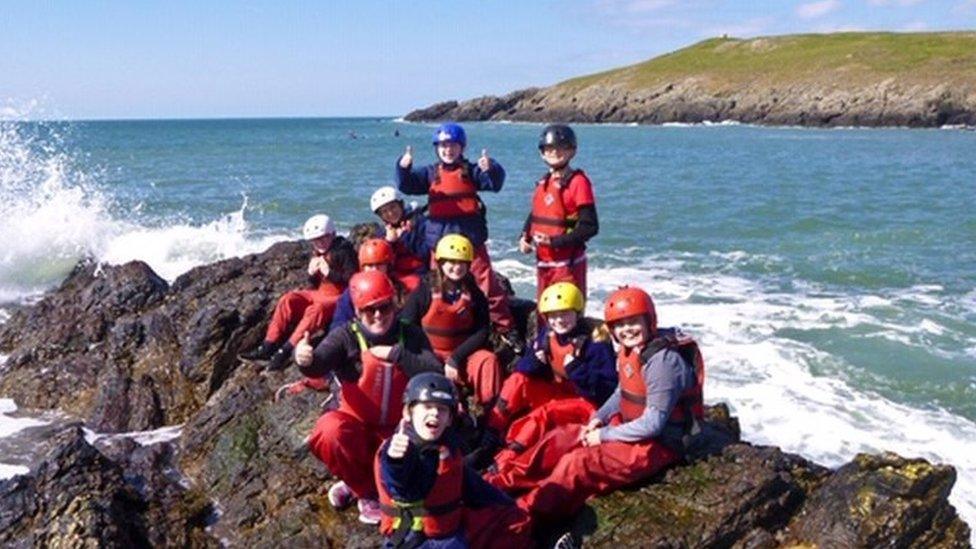
- Published16 October 2020
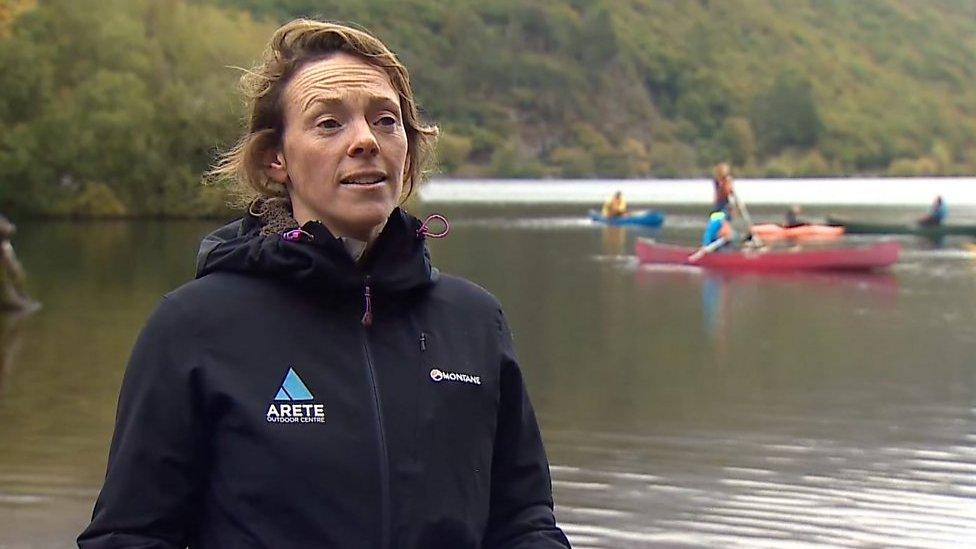
- Published10 February 2021
